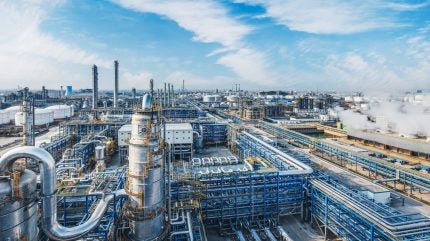
Nigeria has announced the partial resumption of operations at the Warri oil refinery, reducing the country’s reliance on imported fuel.
The 125,000 barrel-per-day (bpd) refinery, which was shut down in 2015 due to disrepair and crude shortages, is now operating at 60% capacity, according to a statement from presidential spokesperson Bayo Onanuga.

Discover B2B Marketing That Performs
Combine business intelligence and editorial excellence to reach engaged professionals across 36 leading media platforms.
Now operating at 60% capacity, the facility is part of the government’s commitment to revitalise its refining sector, plagued by years of neglect and mismanagement.
“This plant is running. We have not completed 100%,” Mele Kyari, head of the state oil firm NNPC, said during a tour of the facility with government officials, regulators and journalists.
The refinery, currently undergoing rehabilitation since 2021 at a cost of $898m, will focus on producing straight-run kerosene, diesel, and naphtha, the Nigerian presidency said in an emailed statement.
Nigeria’s refining infrastructure comprises four state-owned refineries with a combined capacity of 445,000bpd. These include the 110,000bpd Kaduna plant and three units in the Niger Delta, all of which have been non-operational for years, reported Reuters.

US Tariffs are shifting - will you react or anticipate?
Don’t let policy changes catch you off guard. Stay proactive with real-time data and expert analysis.
By GlobalDataLast month, the Nigerian National Petroleum Corporation (NNPC) reported the restart of the 60,000 bpd Port Harcourt refinery, aiming to revive all four facilities this year.
This month, Nigeria’s Dangote Refinery exported its first petrol shipment to Cameroon. This development could contribute to stabilising fuel prices across the region.
The Dangote Refinery, located in the Lekki Free Zone in Lagos, has a production capacity of 650,000 barrels per day (bpd).





